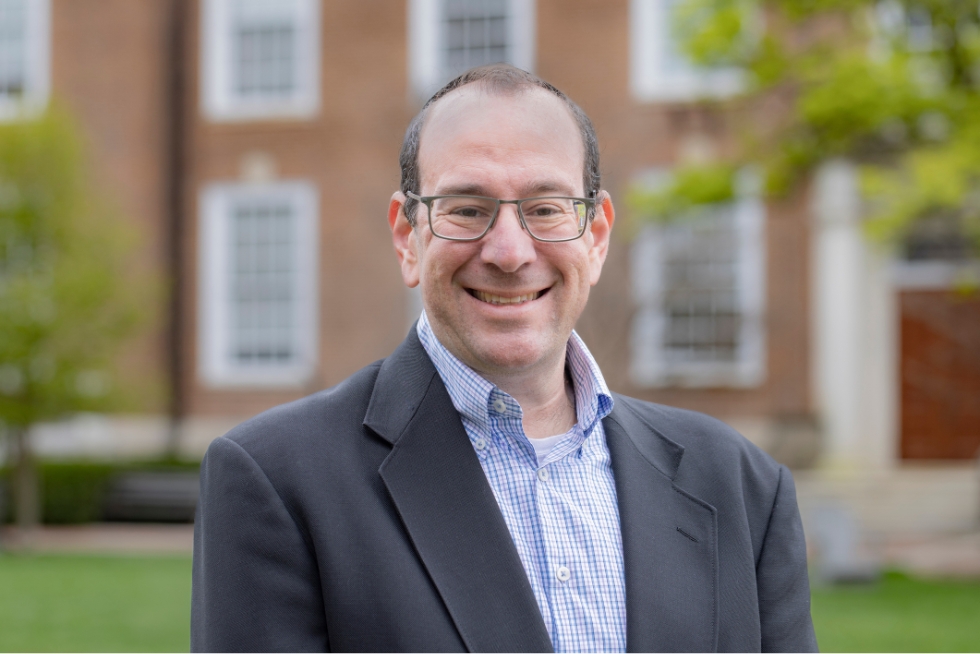Mark Dredze, a member of Johns Hopkins University’s computer science faculty since 2009 and a pioneer in the application of artificial intelligence for language analysis to public health and medicine, has been named the inaugural director of the university’s Data Science and AI Institute.
Dredze, who has been serving as DSAI’s interim deputy director, was selected following an extensive international search for an individual to lead an institute that brings together world-class experts in AI, data science, machine learning, applied mathematics, computer engineering, and computer science to fuel data-driven discovery and innovation in research activities across the institution—from neuroscience and public health to national security and societal safety to space systems and materials science.
Dredze’s appointment as director is effective as of November 1. He will build his core leadership team in the coming months.
“Mark exemplifies the pioneering and interdisciplinary ethos central to the mission of DSAI, pursuing research defined by a deep commitment to interdisciplinary collaboration, data-driven discovery, and impactful problem-solving,” JHU President Ron Daniels and Provost Ray Jayawardhana wrote in a message to the university community. “His selection reaffirms not only the university’s position as a destination for world-class talent in data science and AI, but also the remarkable expertise within our own faculty.”
Dredze is internationally recognized for his seminal work utilizing machine learning and natural language processing tools to gain insights from social media data that enhance our understanding of human behavior and inform public health policy and interventions. This work dates to 2011, when Dredze led a team that released one of the first and most comprehensive studies showing that data from Twitter (now called X) can yield useful and actionable public health information, including forecasting the spread of seasonal flu across the U.S. In 2018, his work demonstrated how malicious foreign actors were weaponizing health communication within the U.S. around the vaccine debate.
As one of the founders of this burgeoning area of data informatics research, Dredze’s work has provided critical insights into a range of topics, including suicide prevention, vaccine hesitancy, HIV, tobacco, mental health, gun violence, and other public health issues. In 2017, he co-authored Social Monitoring for Public Health, one of the first books surveying this then-nascent field.
More recently, he has pioneered applications of large language models, such as ChatGPT, in medicine; his 2023 study demonstrated the power of AI-enabled chatbots in delivering high-quality medical information to patients.
Dredze, the university’s John C. Malone Professor of Computer Science, is affiliated with several Johns Hopkins centers, including the Malone Center, the Center for Language and Speech Processing, and the Human Language Technology Center of Excellence. He is also affiliated with the Applied Physics Laboratory and holds a joint appointment in the School of Medicine’s Biomedical Informatics & Data Science section in the Department of Medicine within the Division of General Internal Medicine.
“Mark’s outstanding body of research accomplishment, his ability to identify and act on opportunities—from identifying new data sources to developing innovative applications that address real and pressing societal problems—and his skill at building partnerships make him an ideal leader for this effort,” says Ed Schlesinger, dean of JHU’s Whiting School of Engineering. “Mark has been integral to DSAI’s success, and his vision and reputation will enable us to further advance our efforts, attract the most qualified and innovative faculty and students, and maximize our impact on JHU and the world.”
As DSAI’s interim deputy director, Dredze has briefed congressional staff and media on the power and potential of AI and has also played a critical role in faculty recruitment. In August, the institute announced the arrival of 22 new faculty members, with expertise ranging from computer vision and medical image analysis to robotics and machine learning, large language models and generative AI to neural modeling and quantum mechanics.
These scholars join the more than 150 DSAI-affiliated faculty members across Johns Hopkins in advancing the study of data science, machine learning, and AI and translating that work to a range of critical and emerging fields. In all, 80 new affiliated faculty—nearly half of whom have already been hired—are projected to join the Whiting School to support the institute’s pursuits, in addition to 30 new Bloomberg Distinguished Professors with cross-disciplinary appointments to ensure that scholars across the university can draw on the DSAI’s expertise.
“I welcome this unique opportunity to transform the university for the age of AI, which necessitates building a strong core as well as partnerships throughout the institution,” Dredze says. “We need to develop fundamental methods and explore new applications to meet the critical societal challenges of the future.”
Dredze earned bachelor’s degrees in computer science and computer engineering from Northwestern University, holds a master’s in Modern Jewish History from Yeshiva University, and completed his PhD in computer science at the University of Pennsylvania in 2009. He is the author or co-author of more than 350 scholarly publications, and his work is routinely covered by major media outlets. He has also spent time as a software engineer and researcher at Microsoft, IBM, and Google.
